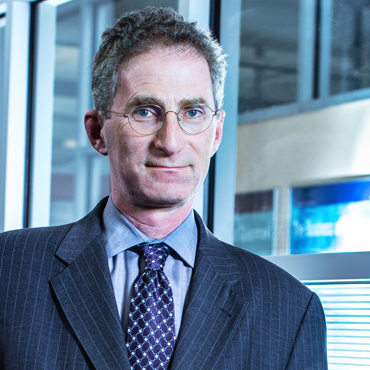Daniel Chenok: Putting government first
Dan Chenok, the IBM Center for the Business of Government's executive director, seems to have a hand in virtually every discussion devoted to making government run better.

First things first: Dan Chenok is no altruist.
One could be forgiven for thinking otherwise, given his ubiquitous activity in the federal IT community. Chenok, the IBM Center for the Business of Government's executive director, seems to have a hand in virtually every discussion devoted to making government run better -- and only rarely does his day job enter into the conversation.
Chenok wrapped up his term as chairman of the Industry Advisory Council last summer, but his work with ACT-IAC continues on multiple fronts. He's a fellow at the National Academy of Public Administration and a CIO SAGE at the Partnership for Public Service. He's actively shaping planning efforts for the next presidential transition -- reprising a role he played in 2008 and 2009 that earned a previous Federal 100 award -- and willingly consults with virtually all comers about government IT and management challenges.
And ultimately, Chenok said, everyone benefits from those efforts.
"I'm able to provide knowledge about what's happening in government and provide an understanding of key trends by being involved" in such groups, he said. "They enable me to be a better asset for IBM. And it was the same for the other companies I was at."
It's a good thing Chenok's employer sees value in that approach because many others in the community have come to depend on it.
Rick Holgate, the former Bureau of Alcohol, Tobacco, Firearms and Explosives CIO who led the government half of ACT-IAC while Chenok led the industry side, praised his partner's "ability to help guide an organization to a productive outcome in a conversation."
Renato "Renny" DiPentima, a longtime mentor who hired Chenok when he left government in 2003, noticed those talents even then. Years at the Office of Management and Budget gave Chenok not only a deep understanding of government, DiPentima said, but also a finely honed ability "to look into the problem or the issue. He's able to articulate it for people who are involved in the problem and those who need to be involved."
The IBM center's work -- particularly the research it commissions -- also reflects that ability to ability to frame government's priorities and bring together the right people to address them. And Chenok said he views leadership in ACT-IAC and other groups as "a terrific way to bring together my support for government [and] the work I'd done with the administration...in a way that certainly IBM supported and that I found a valuable way to help government."
Holgate, who left government in 2015 for a position at Gartner, said Chenok's expertise, connections throughout the community and -- most important -- mindset helped dramatically deepen "that connectedness between ACT-IAC and the government it serves."
Chenok's approach "strengthens that notion that no one belongs to sides in the relationship," Holgate said. "It's the spirit of public service first and foremost, and your career comes second in terms of...what's on your business card."
"That's what I try to bring to all the groups that I work with," Chenok agreed. "In terms of thinking about what are the key priorities that the administration is trying to achieve...and then how can the community vector effort through these organizations most effectively. That's something that I've been able to bring forward, and it's a great privilege to be part of the community."
NEXT STORY: Renato 'Renny' DiPentima





